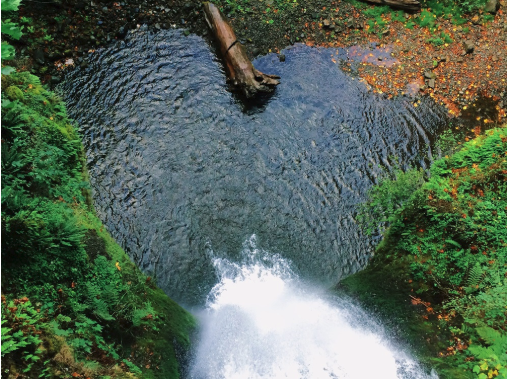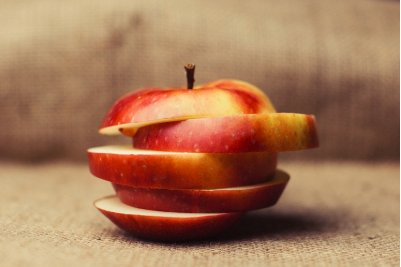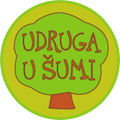Food
Food is a very broad subject and can be approached from many different aspects. We will try to briefly present our perception of food.
Let's start with the fact that people are the only living beings that buy food (and water). So we could say that food is closely related to money – not only the money needed to buy food but also money earned by producing and selling food. When the profit from growing and selling becomes more important than the quality of what is produced we are faced with problems in choosing what, where and from whom to buy our food. Do the labels “eco“, “organic“ and such really guarantee the quality of such foods or are they just another marketing trick to boost profits?
These questions encouraged us to start growing our own food, pick and use wild plants, bake our own bread and buy less. What we cannot produce we buy or exchange goods (which is even better) with likeminded people who value the nutritious quality of foods and are more interested in creating trusting relationships than profits.
Let’s expand this topic a bit…
Food is not the most important in keeping us alive and providing us with energy. Water and air are equally important and are sources of life and energy. As a matter of fact between this three breathing is the most important, then comes water and last comes food (which again needs water and air to grow).
BREATHING
If we stop breathing for just a couple of minutes we cease to be.
Many people have forgotten how to breathe - their breath is shallow if under stress it even stops. Breathing in/out through mouth is a sign of our body’s increased need for air.
For example in yoga practice breathing is done through the nose, which means we need to breathe in less air. When we breathe through the nose the air we breathe in goes through four stages of filtration. When we breathe through the mouth we skip the first three stages of filtration.
When we change our breathing our mood changes as well and vice versa. We can breathe consciously or unconsciously. Breathing consciously is the first step to being conscious of our existence in the moment.
[blockquote author=""]So, our breathing is an indicator of our mood, and our mood is an indicator of the way we breathe.[/blockquote]
WATER
 Our bodies need water more than food. Our bodies are made of approximately 70 % water, meaning we would die of dehydration before we would die of hunger. Water helps our body maintain all bodily functions and is key for the elimination of toxins and waste from our body. Thus the quality of water we drink is very important. Bottled water in plastic bottles is treated to sustain transport and long shelf life and is not “alive“ anymore; same goes for tap water. Ideally, we should drink fresh spring water. But many of us don’t have access to fresh spring water. Finding an optimal water solution for our family and ourselves is becoming ever more complicated. But there are ways to purify the water we have: by leaving it standing in a jar or a pitcher in the sun, or by adding crystals to the water jar or pitcher. We could simply energize it with good thoughts and vibes. For more information on water and its quality, we recommend dr. Emoto's research and experiments that you can read here.
Our bodies need water more than food. Our bodies are made of approximately 70 % water, meaning we would die of dehydration before we would die of hunger. Water helps our body maintain all bodily functions and is key for the elimination of toxins and waste from our body. Thus the quality of water we drink is very important. Bottled water in plastic bottles is treated to sustain transport and long shelf life and is not “alive“ anymore; same goes for tap water. Ideally, we should drink fresh spring water. But many of us don’t have access to fresh spring water. Finding an optimal water solution for our family and ourselves is becoming ever more complicated. But there are ways to purify the water we have: by leaving it standing in a jar or a pitcher in the sun, or by adding crystals to the water jar or pitcher. We could simply energize it with good thoughts and vibes. For more information on water and its quality, we recommend dr. Emoto's research and experiments that you can read here.
An interesting fact - most foods that we eat contain a large percentage of water:
 Potato 76% water
Potato 76% water
Apples 85% water
Tomatoes 90% water
Cucumbers 95% water
Watermelon 96% water
FOOD
Not so long ago every household was self-sufficient and sustainable. It had its own well and produced its own food. Food was seasonal, fresh and nutritive. Fermenting in vinegar, drying in the sun, immersing in oils or preserving in salt were ways to preserve food for winter months to come. In that way not only was the food preserved but its nutritive value as well. So the input people gave for growing, picking and preserving came back as nutritious food over winter months and thus the circle was closed and balanced.
Today, one of the leading industries is food production. Production for profit has taken away the nutritive value of food as well as its taste. Processed food has less life energy from wild plants or unprocessed foods, and we need more of it to meet our daily needs. Not only does processed food slow down our metabolism, it also uses more of our body’s energy to digest it with all its non-natural ingredients used to preserve it. The additives used in processed foods are not likely to kill us, but they do drain our energy and vitality and can lead to various health problems.
[blockquote author=""] ¾ of what you eat sustain your physician, one quarter sustains you![/blockquote]
Using some basic knowledge of wild plants, maybe a small garden bed in our backyard or balcony can go a long way to give us nutritious healthy food, if only as a healthy variety on our plate.




